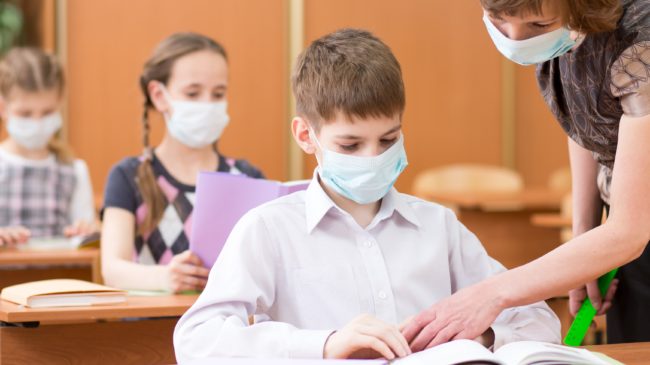Families are in need of educational options now more than ever as we deal with the coronavirus pandemic. Seventeen of the 20 largest school districts in the country, including the School District of Philadelphia, chose to begin this school year without offering an in-person learning option for students. Although remote learning may prove suitable for some families, others may strongly prefer in-person instruction for various educational and child-care needs.
The only way to truly address the diverse needs of families during the pandemic — and beyond — is for Pennsylvania to fund students, rather than school districts, directly.
This is exactly how we fund many other taxpayer-funded initiatives, including Pell Grants for higher education and prekindergarten programs. For these programs, funding goes to families who can then choose from a wide array of public or private providers of the service. The same goes for food stamps. In these scenarios, the power is rightly in the hands of families rather than institutions.
The current public health crisis has produced countless examples of special interests pushing to prevent families from having educational options. Pennsylvania is no exception. In March, the Pennsylvania Association of School Administrators lobbied to make it illegal for families to enroll in virtual charter schools during the lockdown because they were concerned about school districts losing money.
Earlier this spring, the state legislature passed a bill preventing state education dollars from following additional students to charter schools, which protected traditional public schools at the expense of families who might need other options. Now, State Rep. Steve McCarter (D., Montgomery) is planning to introduce a bill that would freeze enrollment at virtual charter schools.
Pennsylvania could decide to instead put families first by allowing education dollars to follow children to the school that works best for them — whether that be a traditional district-run public school, charter school, or private school. One way to do so would be to expand access to the state’s two private school choice programs.
Expanding families’ educational options would not only benefit children but would also have a positive impact on the rest of society. My recently-released study suggests that giving Pennsylvania’s families more options could produce substantial economic and societal benefits through higher lifetime earnings and reductions in crime. The study’s model estimates that doubling current tax-credit scholarship funding in Pennsylvania could produce around $3 billion in additional lifetime earnings associated with improved academic achievement, and save $115 million via reductions in the social costs related to crime.
A timely solution to providing families with more educational options was introduced in the Pennsylvania legislature last month. The proposal would provide federal education dollars from the Coronavirus Aid, Relief, and Economic Security (CARES) Act directly to students to help families offset the costs of homeschooling and private education. These scholarships would be available to help 500,000 K-12 students in Pennsylvania get back on track this fall.
Other states like Oklahoma and South Carolina have already taken advantage of this idea by reallocating much of their federal stimulus dollars directly to families to help them adapt to the current situation as the country deals with the coronavirus pandemic this school year.
Funding students directly would also reduce inequities in school systems by allowing all students to have access to alternative education options. Wealthier families are already accessing “pandemic pods” and micro-schools. Families without the funds for these models risk seeing their students fall further behind.
Allowing just two-thirds of Pennsylvania’s currently allocated K-12 education dollars to follow students to their school of choice would provide each child with $12,500 per year. That’s well over the average private school tuition in the state, and would be more than enough to cover the costs of pandemic pods and micro-schools.
If a business like Walmart chooses not to reopen, families can take their money elsewhere. Shouldn’t families similarly be empowered to take their children’s education dollars elsewhere if schools don’t reopen in ways that fit the individual needs of students and parents? Education funding is intended to help children learn, not to protect a government monopoly.
A version of this column first appeared in the Philidelphia Inquirer.

